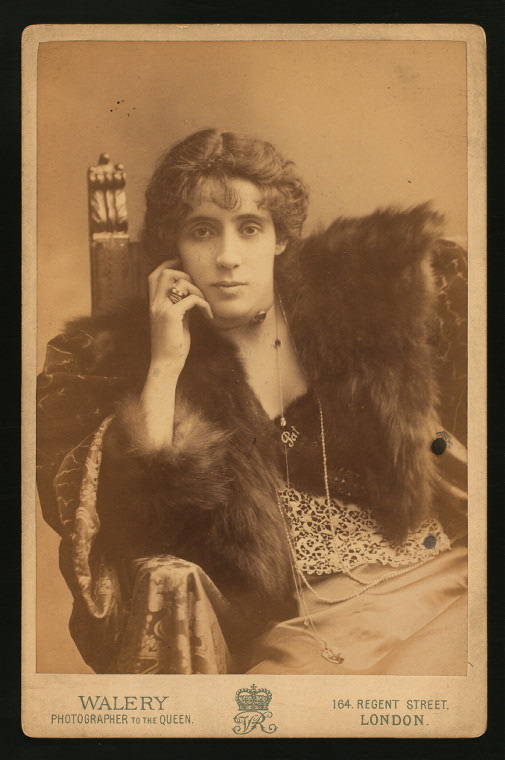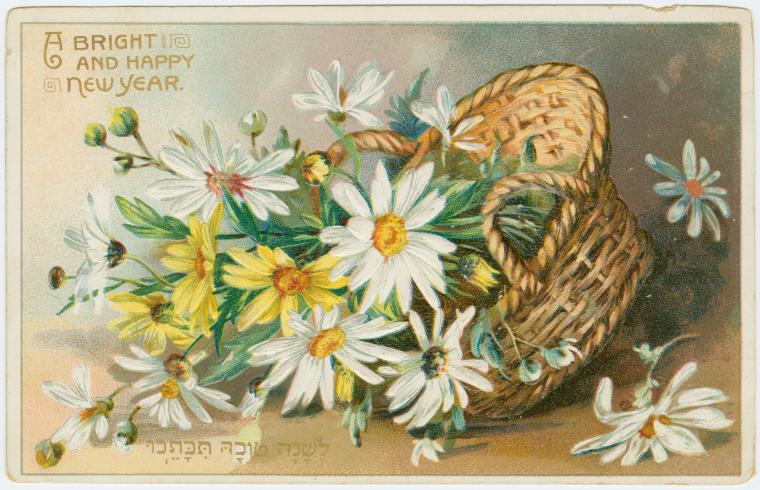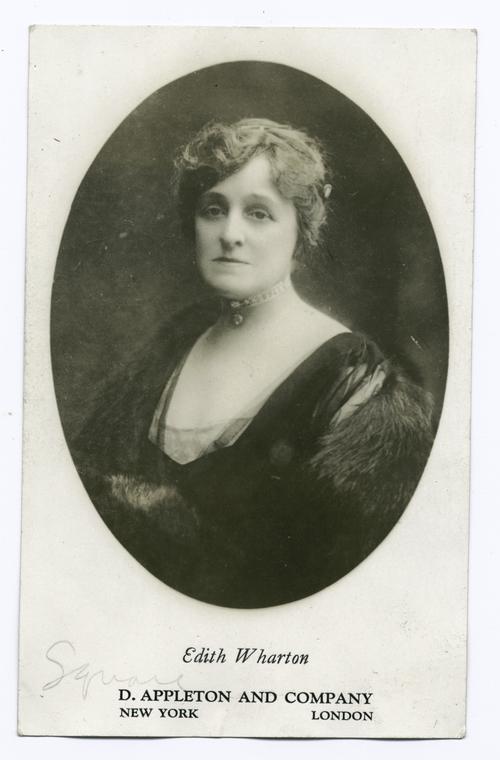Biblio File
Clinging to Books: Reading List 2012
During my vacation from the library, between Christmas and New Year's Day, I learned a remarkable lesson. You can get along very well without NEWS. For a full week, I entered a blissfully news-free vacuum. No NPR; no relentless checking of Google News; no Sunday New York Times beyond Arts and Leisure and the Book Review. I didn't care if it was the twenty-first century or the fifteenth. Without that drumbeat of doom in my head all the time, I could focus on what was really important: family, friends, dining, museums, and music.
Since winter is my favorite time of year, I spent lots of time just walking in the crisp, cleansing air through the burnished wintry light. And, of course, there were books. Books help me define specific moments; I can often invoke a particular episode in my life just by remembering the book I happened to be reading at the time. This Christmas, I received The Library of America edition of Edith Wharton's Novellas and Other Writings, a gratifyingly plump volume which beguiled any number of well-spent hours. Now, sadly, with the new year, I've already started to feel the pull of media-saturation, but I'm still fighting to resist it, still clinging to my own bookish private space.
* * *
Since you happen to be on the website of the New York Public Library, there is a good chance that you share my loyalty to books. We like the look of them, the heft of them in our hands, the relationship we establish with books as physical objects. Our walls are lined with them; and when we don't find a particular title on our shelves, we go to the library and seek it out. We few, we brave few, we band of brothers (and sisters), cling to books and reading like a lifeline. In the silent communion between author and reader, we find one of the few modes of authenticity still available.
* * *
The early part of my reading year was saturated with the Brontë sisters: Charlotte, Emily, and Anne. (This was in preparation for a presentation, The Passionate Brontës, which I will be giving again on March 22.) The year ended with a great swath of Edith Wharton — a fresh enthusiasm which has continued into 2013. Since I am planning a talk on the life of Wharton for this coming fall, I read her three most highly-regarded works in quick succession, an experience of profound intensity. The Custom of the Country is a fierce satire whose principal character, Undine Spragg, is probably the least likeable woman in all fiction; The Age of Innocence, which won the Pulitzer Prize, is perhaps the deepest, richest, and most affecting of all her works; but, if called on to choose a favorite (which thankfully I am not), I would pick The House of Mirth, specifically because Lily Bart is Wharton's most appealing and desirable character, and I fell quite in love with her, which made her downfall so much more wrenching. How far I get with Wharton's lesser known books before the fall presentation remains to be seen. While the Brontës collectively produced only seven novels and a small collection of poems, Wharton is credited with forty-eight published volumes.
Much of my immersion in both the Brontës and Wharton has actually consisted of rereading. One of the amazing things about novels is how they can be reanimated again and again so that every reading of, say, Wuthering Heights or The House of Mirth becomes a unique experience. (Sometimes I suspect a novel isn't really read the first time; it's only on going back that you start to mine its language and subtleties and see it as a whole piece.) Rereading aside, this was a year when I discovered many notable new literary novels. Some I have dealt with in an earlier post (July 11, 2012). Here are four favorites from the second half of the year:
Bring up the Bodies picks up where Hilary Mantel's previous Wolf Hall left off, but it can also be read independently. Although the story of the downfall of Henry VIII's second wife, Anne Boleyn, is familiar and the outcome inevitable, this fictional account is charged with suspense. Henry's chief minister, Thomas Cromwell, is the principal schemer in the plot to overthrow the queen and make room for her successor. While the novel's sixteenth century setting seems authentic, it also has a curiously contemporary feeling. Henry's willful royal demands and Cromwell's ruthless maneuvering are clearly evocative of today's politics and the people who rule us.
The opening lines of Richard Ford's Canada are irresistible: "First, I'll tell you about the robbery our parents committed, then about the murders, which happened later." In Great Falls in 1960, events have spun out of control for sixteen year old Dell Parsons. One bad move has snowballed into another, his parents have been jailed for robbing a bank, and he is forced to seek refuge across the border in Canada. There, Dell is left in the care of his eccentric uncle, who operates a small hotel on the lonely prairie and seems to be harboring dark secrets of his own. Reading the first half of this novel was propulsive; I couldn't turn the pages fast enough. The second is slower and more meditative, but also more deeply disturbing, and it all ends on a note of graphic violence.
 The Swedish novelist Henning Mankell's crime novels featuring Kurt Wallander are among my favorites, and none of their television adaptations, either the Swedish or the British versions, do them justice. Mankell also writes provocative and unusual literary novels. The Shadow Girls, recently released in the United States, is the story of a moderately acclaimed but low-selling Swedish poet whose publisher begins to insist that he write a popular crime novel to survive (you have to wonder how much of this might be autobiographical). Scenes involving the poet and his mother, his duplicitous stockbroker, and his girlfriend who has grown tied of waiting for a commitment are hilarious, with dialogue that might be out of a play by Pinter or Ionesco. In his travels, however, the poet encounters and becomes obsessed by three young immigrant women, the shadow girls, whose stories need to be told. He imagines at first that they might provide material for his own book; but as the heartbreaking reality of their lives emerges, he is compelled to assume a very different role.
The Swedish novelist Henning Mankell's crime novels featuring Kurt Wallander are among my favorites, and none of their television adaptations, either the Swedish or the British versions, do them justice. Mankell also writes provocative and unusual literary novels. The Shadow Girls, recently released in the United States, is the story of a moderately acclaimed but low-selling Swedish poet whose publisher begins to insist that he write a popular crime novel to survive (you have to wonder how much of this might be autobiographical). Scenes involving the poet and his mother, his duplicitous stockbroker, and his girlfriend who has grown tied of waiting for a commitment are hilarious, with dialogue that might be out of a play by Pinter or Ionesco. In his travels, however, the poet encounters and becomes obsessed by three young immigrant women, the shadow girls, whose stories need to be told. He imagines at first that they might provide material for his own book; but as the heartbreaking reality of their lives emerges, he is compelled to assume a very different role.
The Great War exerts an endless fascination. I have awful, indelible pictures in my head of the trenches, the barbed wire, and the senseless charges over the top with bayonets drawn — all from fiction, poetry, movies, and television shows (Downton Abbey being the latest). Pat Barker's "Regeneration" trilogy of novels (Regeneration, The Eye in the Door, and The Ghost Road), as well as her Life Class, were among the most unforgettable portraits of that war, and Toby's Room, her latest, is a powerful complement. A group of students at the Slade School of Fine Arts in London is affected by the war in different ways, some psychologically, some physically. The central figure, Elinor Brooke, tries to push the war aside and pretend it doesn't concern her... until a telegram arrives informing her that her brother, Toby, is "Missing, Believed Killed" in Ypres. But there is no body; and when she discovers a letter to her secreted in the lining of his uniform indicating that he suspected he might not be coming back, she sets out to learn what really happened.

This was also the year I discovered Virginia Woolf. I confess that, at one point in my life, I did not have much use for the works of Virginia Woolf. I tried to read her — and tried — mostly because I thought I should. But Mrs. Dalloway seemed too precious ("What a lark! What a plunge!"). To the Lighthouse was too confusing — who was thinking what, and why, and when was it all happening? And I never much cared whether Orlando was a man or a woman (somewhere around the middle of the novel he/she seems to change from one to the other). But in the middle of the year I casually picked up my tattered copy of Mrs. Dalloway again and started to read. The veil that had separated me from Virginia Woolf was suddenly drawn aside. Those hidden thoughts running through the course of a single day in the life of Mrs. Dalloway reveal so much more than I ever suspected. After that, I was finally able to untangle the interior lives of the British family at the core of To the Lighthouse; the language is so subtle, sharp, and beautifully drawn, I couldn't imagine what it was that put me off the first time around. As far as Orlando is concerned, while I was still shaky on the gender-bending aspect, I saw that it didn't matter, because the novel is composed of beautifully wrought sentences, pulsates with a curious sort of inner life, and is also extremely funny. I have come to regret my past lack of appreciation of Virginia Woolf, but as with life so with reading: timing is everything.
* * *
There is a popular urban legend that librarians get to read a lot of books at work. Although we spend our days surrounded by books, the sad truth is that our reading lives are just as constrained by circumstances as everyone else's. Like you, we have to snatch little chunks of time whenever and however we can. This, then, is one librarian's personal tally of snatched moments and books read simply for his own pleasure. It is the third time I have put such a list online (also 2011 and 2010), and once again I invite you to peek over my shoulder as I look back.
January: Jane Eyre, Charlotte Brontë; Portrait of a Marriage, Nicol Nicolson; The Fifth Woman, Henning Mankell; Villette, Charlotte Brontë
February: Believing the Lie, Elizabeth George; Wuthering Heights, Emily Bronte; Open City, Teju Cole; The Brontës: a Life in Letters, Juliet Barker; Agnes Grey, Anne Brontë
March: The Tenant of Wildfell Hall, Anne Brontë, Mrs. Pat: the Life of Mrs. Patrick Campbell, Margot Peters
April: Shirley, Charlotte Brontë; The Professor, Charlotte Brontë; The New Yorker Theater, Toby Talbot; The Buddha in the Attic, Julie Okutsa
May: The Brontës, Juliet Barker; The Limpopo Academy of Private Detection, Alexander McCall Smith; Breakdown, Sara Paretsky; The Bronte Myth, Lucasta Muiller; The Beginner's Goodbye, Anne Tyler; The Barbarian Nurseries, Hector Tobar
June: Schmidt Steps Back, Louis Begley; Charlotte Brontë: A Passionate Life, Lyndall Gordon; The Beacon, Susan Hill; Mrs. Dalloway, Virginia Woolf; Before the Poison, Peter Robinson; The Farthing House and Other Stories, Susan Hill; The Perfect Wagnerite, George Bernard Shaw; The Pyramid, Henning Mankell
July: To The Lighthouse, Virginia Woolf, The Uncoupling, Meg Wolitzer; Orlando, Virginia Woolf; The Unfinished Novel and Other Stories, Valerie Martin; Virginia Woolf, Monique Nathan; Vineyard Prey, Philip R. Craig
August: Everyman's Pocket Classics: Stories of the Sea; Collected Essays, Vol.1, Virginia Woolf; Collected Essays, Vol. 2, Virginia Woolf; Wish you Were Here, Graham Swift
September: Canada, Richard Ford; Bring up the Bodies, Hilary Mantel; The Wife, Meg Wolitzer; Born Round, Frank Bruni; The Position, Meg Wolitzer
October: A Motor-Flight Through France, Edith Wharton; The Custom of the Country, Edith Wharton; How it All Began, Penelope Lively; Toby's Room, Pat Barker; The Tempest, William Shakespeare
November: The Age of Innocence, Edith Wharton; The Round House, Louise Erdrich; The House of Mirth, Edith Wharton
December: The New Yorker Stories, Ann Beattie; Edith Wharton: A Biography, R. W. B. Lewis; The Shadow Girls, Henning Mankell; Madame de Treymes/Ethan Frome, Edith Wharton; A Christmas Carol, Charles Dickens
Read E-Books with SimplyE
 With your library card, it's easier than ever to choose from more than 300,000 e-books on SimplyE, The New York Public Library's free e-reader app. Gain access to digital resources for all ages, including e-books, audiobooks, databases, and more.
With your library card, it's easier than ever to choose from more than 300,000 e-books on SimplyE, The New York Public Library's free e-reader app. Gain access to digital resources for all ages, including e-books, audiobooks, databases, and more.
If you don’t have an NYPL library card, New York State residents can apply for a digital card online or through SimplyE (available on the App Store or Google Play).
Need more help? Read our guide to using SimplyE.



Comments
Thank you for sharing your
Submitted by JF (not verified) on January 22, 2013 - 1:54pm
What A Marvelous List!
Submitted by Michael Hearn, ... (not verified) on October 24, 2013 - 3:36pm